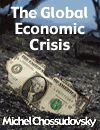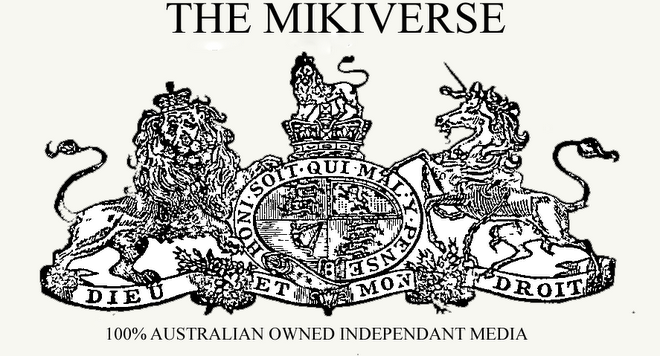Over 62 million mortgages are now held in the name of MERS, an electronic recording system devised by and for the convenience of the mortgage industry. A California bankruptcy court, following landmark cases in other jurisdictions, recently held that this electronic shortcut breaks the chain of title, voiding foreclosure. The logical result could be 62 million homes that are foreclosure-proof.
In a Newsweek article a year ago called "Too Big to Jail: Why Prosecutors Won’t Hit Wall Street Hard in the Subprime Scandal," Michael Hirsch wrote that we were unlikely to see trials and convictions like those in the savings and loan scandals of the 1980s, because fraud and blame have been so widespread that there is no one to single out and jail. Said Hirsch:
“The sad irony is that in pleading collective guilt, most of Wall Street will escape whipping for a scheme that makes Bernie Madoff's shenanigans look like pickpocketing. At the crest of the real-estate bubble, fraud was systemic and Wall Street had essentially gone into the loan-sharking business.”
“Unfortunately,” he added, “prosecution of fraud is the only way you're going to get reform on Wall Street.”
Sure enough, a year later we got a banking reform bill that was so watered down that Wall Street got nearly everything it wanted. The too-big-to-fails, rather than being whittled down to size, have grown even bigger, circumventing antitrust laws; and they are being allowed to carry on pretty much as before. The Federal Reserve, rather than being called on the carpet, has been given even more power; and the Consumer Protection Agency -- the main part of the bill with teeth – has been put under the Fed’s watchful eye. Congress and the Justice Department seem to have bowed out, leaving no one to hold the finance industry to account.
But the best laid plans even of Wall Street can sometimes go awry. In an ironic twist, the industry may wind up tripping over its own Achilles heel, the Mortgage Electronic Registration Systems or MERS. An online computer software program for tracking mortgage ownership and rights, MERS is, according to its website, “an innovative process that simplifies the way mortgage ownership and servicing rights are originated, sold and tracked. Created by the real estate finance industry, MERS eliminates the need to prepare and record assignments when trading residential and commercial mortgage loans.” Or as Karl Denninger puts it, “MERS own website claims that it exists for the purpose of circumventing assignments and documenting ownership!”
MERS was developed in the early 1990s by a number of financial entities, including Bank of America, Countrywide, Fannie Mae, and Freddie Mac, allegedly to allow consumers to pay less for mortgage loans. That did not actually happen, but what MERS did allow was the securitization and shuffling around of mortgages behind a veil of anonymity. The result was not only to cheat local governments out of their recording fees but to defeat the purpose of the recording laws, which was to guarantee purchasers clean title. Worse, MERS facilitated an explosion of predatory lending in which lenders could not be held to account because they could not be identified, either by the preyed-upon borrowers or by the investors seduced into buying bundles of worthless mortgages. As alleged in a Nevada class action called Lopez vs. Executive Trustee Services, et al.:
“Before MERS, it would not have been possible for mortgages with no market value . . . to be sold at a profit or collateralized and sold as mortgage-backed securities. Before MERS, it would not have been possible for the Defendant banks and AIG to conceal from government regulators the extent of risk of financial losses those entities faced from the predatory origination of residential loans and the fraudulent re-sale and securitization of those otherwise non-marketable loans. Before MERS, the actual beneficiary of every Deed of Trust on every parcel in the United States and the State of Nevada could be readily ascertained by merely reviewing the public records at the local recorder’s office where documents reflecting any ownership interest in real property are kept. . . .
“After MERS, . . . the servicing rights were transferred after the origination of the loan to an entity so large that communication with the servicer became difficult if not impossible. . . . The servicer was interested in only one thing – making a profit from the foreclosure of the borrower’s residence – so that the entire predatory cycle of fraudulent origination, resale, and securitization of yet another predatory loan could occur again. This is the legacy of MERS, and the entire scheme was predicated upon the fraudulent designation of MERS as the ‘beneficiary’ under millions of deeds of trust in Nevada and other states.”
MERS now holds over 62 million mortgages in its name, including over half of all new U.S. residential mortgage loans. But courts are increasingly ruling that MERS is merely a nominee, without standing to foreclose on the collateral that makes up a major portion of the portfolios of
some very large banks. It seems the banks claiming to be the real parties in interest may have short-circuited themselves out of the chain of title entitling them to the collateral.
Technicality or Fatal Flaw?
To foreclose on real property, the plaintiff must be able to produce a promissory note or assignment establishing title. Early cases focused on MERS’ inability to produce such a note, but most courts continued to consider the note a mere technicality and ignored it. Landmark newer opinions, however, stress that this defect is not just a procedural but a substantive failure, one that is fatal to the plaintiff’s case.
The latest of these decisions came down in California on May 20, 2010, in a bankruptcy case called In re Walker, Case no. 10-21656-E–11. The court held that MERS could not foreclose because it was a mere nominee, and that as a result plaintiff Citibank could not collect on its claim. The judge opined:
“Since no evidence of MERS’ ownership of the underlying note has been offered, and other courts have concluded that MERS does not own the underlying notes, this court is convinced that MERS had no interest it could transfer to Citibank. Since MERS did not own the underlying note, it could not transfer the beneficial interest of the Deed of Trust to another. Any attempt to transfer the beneficial interest of a trust deed without ownership of the underlying note is void under California law.”
In support, the judge cited In Re Vargas (California Bankruptcy Court); Landmark v. Kesler (Kansas Supreme Court); LaSalle Bank v. Lamy (a New York case); and In Re Foreclosure Cases (the “Boyko” decision from Ohio Federal Court). (For more on these earlier cases, see here, here and here.) The court concluded:
“Since the claimant, Citibank, has not established that it is the owner of the promissory note secured by the trust deed, Citibank is unable to assert a claim for payment in this case.”
The broad impact the case could have on California foreclosures is suggested by attorney Jeff Barnes, who writes:
“This opinion . . . serves as a legal basis to challenge any foreclosure in California based on a MERS assignment; to seek to void any MERS assignment of the Deed of Trust or the note to a third party for purposes of foreclosure; and should be sufficient for a borrower to not only obtain a TRO [temporary restraining order] against a Trustee’s Sale, but also a Preliminary Injunction barring any sale pending any litigation filed by the borrower challenging a foreclosure based on a MERS assignment.”
While not binding on courts in other jurisdictions, the ruling could serve as persuasive precedent there as well, because the court cited non-bankruptcy cases related to the lack of authority of MERS, and because the opinion is consistent with prior rulings in Idaho and Nevada Bankruptcy courts on the same issue.
RICO and Fraud Charges
Other suits go beyond merely challenging title to alleging criminal activity. On July 26, 2010, a class action was filed in Florida seeking relief against MERS and an associated legal firm for racketeering and mail fraud. It alleges that the defendants used “the artifice of MERS to sabotage the judicial process to the detriment of borrowers;” that “to perpetuate the scheme, MERS was and is used in a way so that the average consumer, or even legal professional, can never determine who or what was or is ultimately receiving the benefits of any mortgage payments;” that the scheme depended on “the MERS artifice and the ability to generate any necessary ‘assignment’ which flowed from it;” and that “by engaging in a pattern of racketeering activity, specifically ‘mail or wire fraud,’ the Defendants . . . participated in a criminal enterprise affecting interstate commerce.”
Local governments deprived of filing fees may also be getting into the act, at least through representatives suing on their behalf. Qui tam actions allow for a private party or “whistle blower” to bring suit on behalf of the government for a past or present fraud on it. In State of California ex rel. Barrett R. Bates, filed May 10, 2010, the plaintiff qui tam sued on behalf of a long list of local governments in California against MERS and a number of lenders, including Bank of America, JPMorgan Chase and Wells Fargo, for “wrongfully bypass[ing] the counties’ recording requirements; divest[ing] the borrowers of the right to know who owned the promissory note . . .; and record[ing] false documents to initiate and pursue non-judicial foreclosures, and to otherwise decrease or avoid payment of fees to the Counties and the Cities where the real estate is located.” The complaint notes that “MERS claims to have ‘saved’ at least $2.4 billion dollars in recording costs,” meaning it has helped avoid billions of dollars in fees otherwise accruing to local governments. The plaintiff sues for treble damages for all recording fees not paid during the past ten years, and for civil penalties of between $5,000 and $10,000 for each unpaid or underpaid recording fee and each false document recorded during that period, potentially a hefty sum. Similar suits have been filed by the same plaintiff qui tam in Nevada and Tennessee.
Axing the Bankers’ Money Tree
Most courts continue to look the other way on MERS’ lack of standing to sue, but the argument has picked up enough steam to consider the rather stunning implications. If MERS is not the title holder of properties held in its name, the chain of title has been broken, and no one may have standing to sue. In MERS v. Nebaska Department of Banking and Finance, MERS insisted that it had no actionable interest in title, and the court agreed.
An August 2010 article in Mother Jones titled “Fannie and Freddie’s Foreclosure Barons” exposes a widespread practice of “foreclosure mills” in backdating assignments after foreclosures have been filed. Not only is this perjury, a prosecutable offense, but if MERS was never the title holder, there is nothing to assign. The defaulting homeowners could wind up with free and clear title.
In Florida, Jacksonville Area Legal Aid attorney April Charney has been using the missing-note argument ever since she first identified that weakness in the lenders’ case in 2004. Five years later, she says, some of those homeowners are still in their homes. According to a Huffington Post article titled “‘Produce the Note’ Movement Helps Stall Foreclosures”:
“Because of the missing ownership documentation, Charney is now starting to file quiet title actions, hoping to get her homeowner clients full title to their homes (a quiet title action ‘quiets’ all other claims). Charney says she’s helped thousands of homeowners delay or prevent foreclosure, and trained thousands of lawyers across the country on how to protect homeowners and battle in court.”
If courts overwhelmed with foreclosures decide to take up the cause, the result could be millions of struggling homeowners with the banks off their backs, and millions of homes no longer on the books of some too-big-to-fail banks. Without those assets, the banks could again be looking at bankruptcy. As was pointed out in a San Francisco Chronicle article by attorney Sean Olender following the October 2007 Boyko decision:
“The ticking time bomb in the U.S. banking system is not resetting subprime mortgage rates. The real problem is the contractual ability of investors in mortgage bonds to require banks to buy back the loans at face value if there was fraud in the origination process.
“. . . The loans at issue dwarf the capital available at the largest U.S. banks combined, and investor lawsuits would raise stunning liability sufficient to cause even the largest U.S. banks to fail . . . .”
Nationalization of these giant banks might be the next logical step – a step that some commentators said should have been taken in the first place. When the banking system of Sweden collapsed following a housing bubble in the 1990s, nationalization of the banks worked out very well for that country.
The Swedish banks were largely privatized again when they got back on their feet, but it might be a good idea to keep some banks as publicly-owned entities, on the model of the Commonwealth Bank of Australia. For most of the 20th century it served as a “people’s bank,” making low interest loans to consumers and businesses through branches all over the country.
With the strengthened position of Wall Street following the 2008 bailout and the tepid 2010 banking reform bill, the U.S. is far from nationalizing its mega-banks now. But a committed homeowner movement to tear off the predatory mask called MERS could yet turn the tide. While courts are not likely to let 62 million homeowners off scot free, the defect in title created by MERS could give them significant new leverage at the bargaining table.
Ellen Brown developed her research skills as an attorney practicing civil litigation in Los Angeles. In Web of Debt, her latest of eleven books, she turns those skills to an analysis of the Federal Reserve and “the money trust.” She shows how this private cartel has usurped the power to create money from the people themselves, and how we the people can get it back. Her websites are www.webofdebt.com, www.ellenbrown.com, and www.public-banking.com.
READ ELLEN BROWN IN NEW BOOK FROM GLOBAL RESEARCH
The Global Economic Crisis
Michel Chossudovsky
Andrew G. Marshall (editors)  Philadelphia, the home of the Liberty Bell wants bloggers to pay up or shut up. The crack in the Liberty Bell just grew wider. That’s right, forget your free speech rights, because according to Philadelphia it isn’t free. It’ll cost you $300 if you run a blog with any ads that creates even 1 cent of income.
Philadelphia, the home of the Liberty Bell wants bloggers to pay up or shut up. The crack in the Liberty Bell just grew wider. That’s right, forget your free speech rights, because according to Philadelphia it isn’t free. It’ll cost you $300 if you run a blog with any ads that creates even 1 cent of income.






